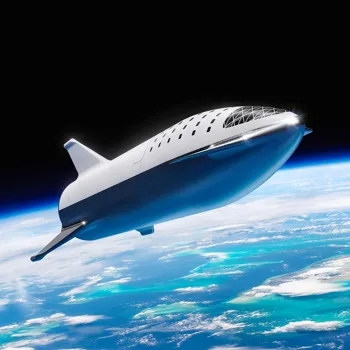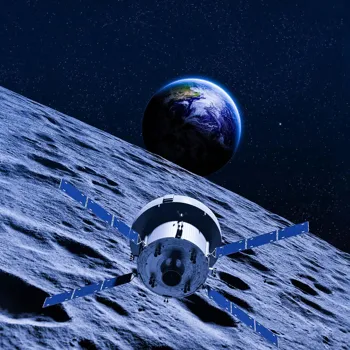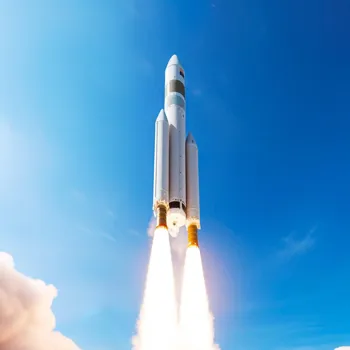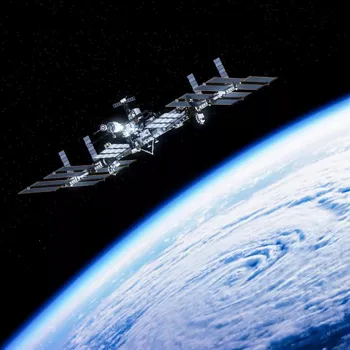Unlocking the Future of Space Tourism: A Decade of Cosmic Adventures Await! Dive into the possibilities and innovations ahead
The dream of travelling to space, once confined to the realms of science fiction,
is rapidly inching closer to becoming a tangible reality for a select few.

Space tourism, still in its nascent stages, has already witnessed groundbreaking milestones, with companies like Virgin Galactic and Blue Origin successfully launching civilians on suborbital flights. But what does the next decade hold for this burgeoning industry?
Buckle up, because the journey promises to be nothing short of stellar.
Space tourism evolving from suborbital hops to lunar missions, with safety and costs key
The initial phase of space tourism has been characterized by short suborbital hops, providing passengers with a taste of weightlessness and breathtaking views of Earth's curvature. These flights, while undeniably thrilling, are just the tip of the iceberg.

In the coming years, we can anticipate a diversification of space tourism offerings, catering to a wider range of interests and budgets. Orbital flights, where passengers spend several days orbiting the Earth, are on the horizon, promising a more immersive and extended space experience.
Moreover, lunar missions, potentially including flybys or even landings, are being actively explored, although these remain a longer-term ambition.
As technology progresses and competition intensifies, we can expect to see a gradual reduction in costs, although space tourism will likely remain a premium experience for the foreseeable future.
Safety regulations and protocols will also need to evolve to ensure the well-being of space tourists, fostering public confidence in the industry. This future growth hinges on the advancements in rocket technology and space vehicles.
Development of reusable rockets and spaceplanes key to sustainable space tourism
The development of reusable launch systems is crucial for making space tourism more sustainable and affordable. Companies are investing heavily in technologies that allow rockets to land back on Earth after launching payloads, reducing waste and lowering the cost per flight.

The next decade will likely see further refinements in reusable rocket technology, making space travel more accessible. Furthermore, advancements in spacecraft design are also essential.
Spaceplanes, which can take off and land like airplanes, offer a more convenient and potentially safer alternative to traditional rockets.
Research and development in areas such as propulsion systems, materials science, and life support systems will also play a significant role in shaping the future of space tourism. The materials used for the aircraft must be durable and light.
Space tourism offers diverse experiences beyond weightlessness, including scientific experiments and space hotels
Beyond simply experiencing weightlessness and gazing at our planet from afar, space tourism has the potential to offer a range of unique and enriching experiences.

Imagine conducting scientific experiments in microgravity, participating in astronomical observations from beyond Earth's atmosphere, or even creating art in space. These experiences could attract a diverse range of individuals, from scientists and researchers to artists and educators.
This goes beyond just having a holiday in space. Space hotels are another exciting concept that is gaining traction. These orbital facilities would offer accommodations, recreational activities, and perhaps even the opportunity to conduct commercial activities in space.
While the construction of space hotels presents significant technical and logistical challenges, several companies are actively pursuing this vision.
Space tourism's environmental impact and need for sustainability
The environmental impact of space tourism is a growing concern. Rocket launches release greenhouse gases and other pollutants into the atmosphere, potentially contributing to climate change.
It is important for the space tourism industry to adopt sustainable practices and technologies to minimize its environmental footprint. This includes developing cleaner propellants, reducing waste generation, and implementing measures to protect the space environment from debris and pollution.
The carbon footprint involved in creating these aircrafts should also be taken into account. International collaboration and regulation are also necessary to ensure that space tourism is developed in a responsible and sustainable manner.
Space tourism boosts economy through innovation, job creation, and education
The rise of space tourism will undoubtedly have a significant impact on the economy. It will create new jobs in various sectors, including aerospace engineering, manufacturing, tourism, and hospitality.

Moreover, it will stimulate innovation and technological development, potentially leading to breakthroughs in other fields. Space tourism could also inspire a new generation of scientists and engineers, fostering a greater interest in space exploration and STEM education.
The creation of new revenue streams can be reinvested into further explorations. Furthermore, the unique perspective gained from space travel can promote a greater sense of global citizenship and environmental awareness.
Exciting prospects for space tourism in the next decade
The next decade promises to be an exciting chapter in the story of space tourism. While challenges remain, the potential rewards are immense. As technology advances, costs decrease, and regulations evolve, space tourism will likely become more accessible to a wider range of individuals.

It could be a once-in-a-lifetime experience. From suborbital hops to orbital stays and potentially even lunar missions, the future of space tourism is brimming with possibilities.
As India continues to bolster its space program, the nation could too contribute significantly to the growth to space tourism in the coming years and participate in the economic benefits that come with it.
It is important for stakeholders to address the environmental impact and social implications of this emerging industry to ensure that it is developed in a responsible and sustainable manner.





















